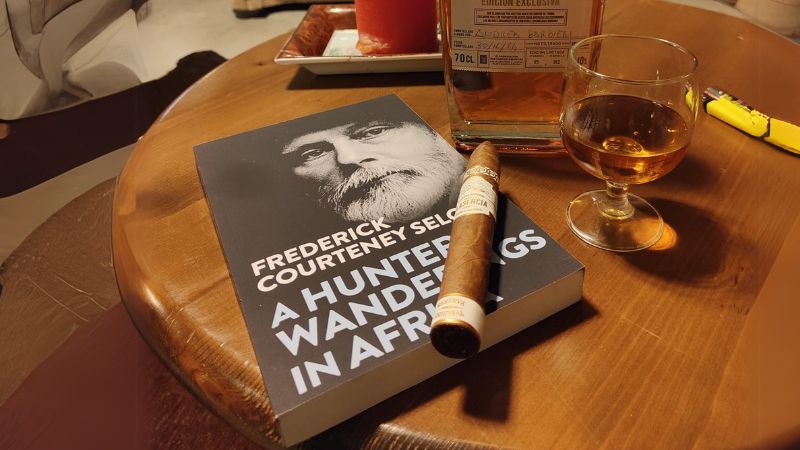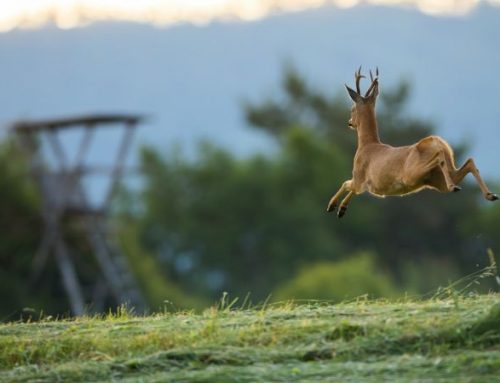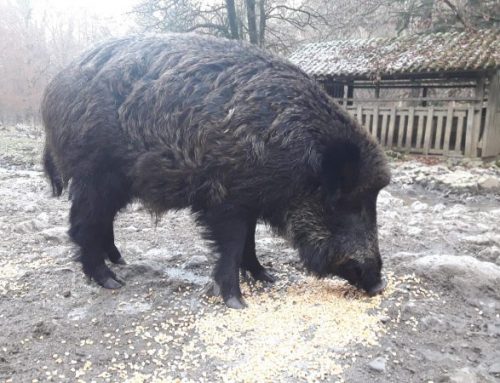There are days when hunting is not experienced in the woods, but among the pages of a book. When the scent of paper blends with the leather of cartridge belts, and the rustling of leaves is found between the lines of a story.
Reading about hunting is another way to love it. It is a slow, profound act that connects generations of hunters, childhood memories, dreams of distant lands, dawn silences, and sunsets tinged with the smoke of a fire.
Hunting literature is not just about technique: it is culture, memory, and spirituality. It is the very soul of a passion passed down through stories.
We’ve selected the essential volumes for you: timeless classics, manuals, tales, reflections, and collector’s books. To read, reread, and pass on.
Great Classics of Hunting Literature
Green Hills of Africa – Ernest Hemingway
Published in 1935, this autobiographical novel recounts Hemingway’s safari in East Africa. Divided into four parts, it blends hunting narrative with reflections on writing, love, and death. A masterpiece that speaks of hunting—and of life itself.
Green Hills of Africa – Ernest Hemingway
Death in the Long Grass – Peter H. Capstick
Gripping and straightforward, this book recounts hunts for Africa’s great predators in vivid style. Lions, leopards, buffalo, and rhinos are described with adrenaline, respect, and a touch of irony. A must-read for anyone who dreams of—or has lived—Africa.
African Game Trails – Theodore Roosevelt
A detailed account of the American president’s 1909 safari, it combines science, politics, and adventure. Roosevelt describes techniques, encounters, and environments with the meticulousness of an explorer and the passion of a thoughtful hunter.
A Hunter’s Sketches – Ivan Turgenev
A classic of Russian literature. Through short stories set in the countryside, Turgenev paints a lyrical and deeply human portrait. A vision of hunting made of pauses, encounters, reflections, and love for the land.
Technical Manuals and Practical Books
The Art of Big Game Hunting in North America – Jack O’Connor
A comprehensive guide for anyone who truly wants to understand the pursuit of North America’s big game—moose, mountain lions, bears. O’Connor offers practical advice, analyzes behavior, weapons, and ballistics. An encyclopedia for the modern hunter.
Shotguns and Shooting – Michael McIntosh
Books for the Hunter’s Soul
The Hunter – Jünger, Modugno, Raspanti (Marsilio)
A literary and philosophical journey into hunting. The three authors narrate, reflect, and observe. A refined collection for those who seek a spiritual and cultural dimension in hunting.
The Time of the Woodcock – Michele Sàndri
Autumn atmospheres, woodland silences, pointing dogs, intimate emotions. A poetic, melancholic book that captures the deepest meaning of woodcock hunting.
Hunting: Reflections of a Free Man – Dominique Venner
A passionate yet rational defense of hunting as a cultural, identity-shaping, and free act. A text that invites reflection, awareness, and pride.
Historical and Collector’s Books
Hunting Weapons – Howard L. Blackmore
An art and history volume on hunting weapons from the 16th to the 19th century. Illustrations, technical analysis, anecdotes. For those who love the beauty of the firearm and its evolution through time.
Game Shooting: An Illustrated History – David S. D. Jones
An elegant illustrated collection on hunting in the UK: driven shoots, vintage portraits, dream guns, aristocratic traditions. A book to study, display, and treasure.
Safari in Africa: The Adventure in Your Library
Every hunter dreams, sooner or later, of the great African landscapes: the savanna, the slow rivers, the blazing sunsets, and roars in the night. The safari, in hunting literature, represents the ultimate myth—a realm that combines exploration, challenge, contemplation, and respect.
There are many books on African hunting, often written by those who have experienced firsthand the adrenaline of facing buffalo, elephant, or lion.
Death in the Long Grass by Peter H. Capstick is the most famous: intense, often dramatic stories that let the reader feel the dangers and emotions of big game hunting. Capstick was both a professional hunter and an unparalleled storyteller, and in his books—from Safari to Death in the Silent Places—shines a deep respect for African nature.
African Game Trails by Theodore Roosevelt is a monumental work: it recounts the great presidential safari of 1909, blending hunting, zoology, politics, and diplomacy.
Green Hills of Africa by Hemingway is poetry instead. A slow-paced tale, full of silences, cigar smoke, and endless landscapes. Africa becomes a metaphor for life, death, and writing.
For those who love Africa, these books are essential. And they should be read from a veranda, with a strong cup of coffee and a gaze fixed on the horizon.
Hunting Ethics and Etiquette: The Invisible Knowledge
Beyond techniques and experiences, hunting demands a deep understanding of ethics and etiquette. It is what distinguishes a true hunter from a mere shooter. Proper, respectful, and conscious behavior is an integral part of hunting tradition—and it cannot be improvised.
Hunting ethics are rooted in values such as respect for wildlife, responsible game selection, environmental sustainability, loyalty to hunting companions, and personal honor. It’s knowing when to hold your fire, knowing how to wait, and respecting the written and unwritten rules of an ancient world.
Etiquette, instead, is the form that gives shape to all this.
It is the art of behaving properly during a hunt, dressing with sobriety and decorum, maintaining composure and discretion, thanking those who host and accompany you, and honoring the game taken.
Books such as “The Ethics of Hunting” by José Ortega y Gasset, or the most noble writings of authors like Jünger, Modugno, and Capstick, help us understand that hunting is not just about shooting—it is about choosing, preserving, and acting with honor.
Every hunting library should dedicate space to these essential texts, because technique can be learned, but ethics must be passed down.
A Hunter’s Library
A hunter’s library is a winter refuge, a summer companion, a map for every season. It can be organized into:
-
Hunting fiction: to dream, empathize, and feel
-
Manuals and technical guides: to learn, improve, and prepare
-
Philosophy and culture: to defend, understand, and pass on
-
History and illustration: to admire, collect, and honor
It may be accompanied by trophies, vintage prints, hunting photographs, briarwood pipes, and antique knives. It is a place of the soul.
Every hunter needs the woods. But also, words.
Books help us recognize our emotions, understand who we are, and rediscover—in the written page—the profound meaning of a passion rooted in the history of humankind.
To read about hunting is to hunt with the mind. It is to keep a tradition alive, with both head and heart.
This is why a hunting library is not a luxury—it is a necessity.
For rainy days, for long journeys, for winter evenings, for the silence of waiting.
Let us enrich it. Let us protect it. Let us pass it on.










